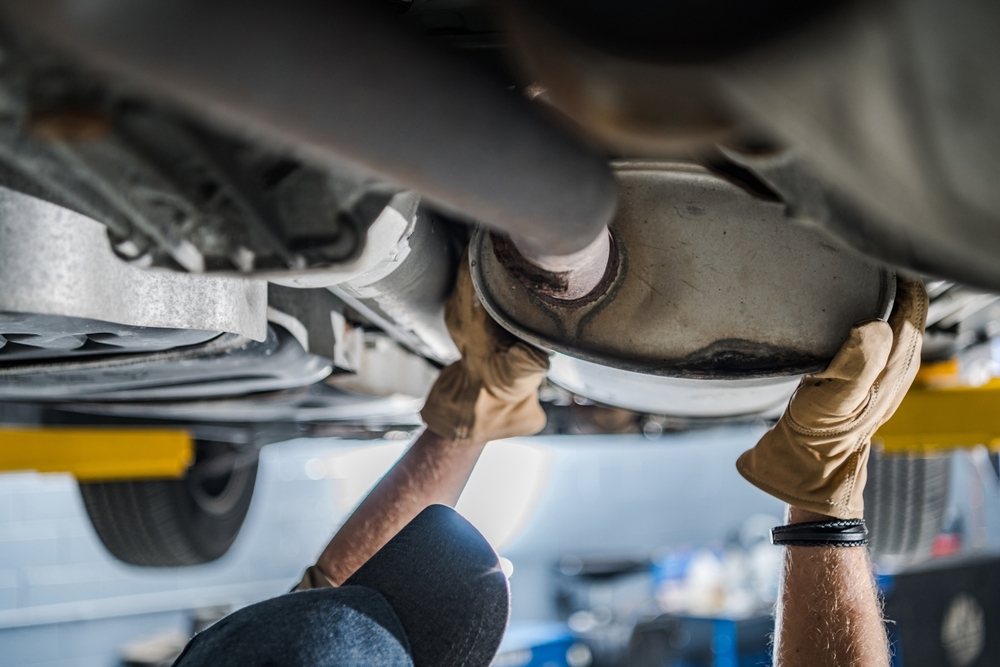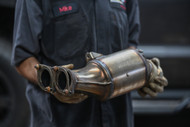Can You Use an Aftermarket Catalytic Converter in California?
22nd Jul 2025
California is known for having some of the strictest vehicle emissions laws in the country, and one of the components most affected by these regulations is the catalytic converter. If your catalytic converter fails, you might be considering an aftermarket replacement. But can you use an aftermarket catalytic converter in California?
The answer is yes—but only if it meets California emissions standards. This blog will walk you through the current rules, which aftermarket catalytic converters are legal, how they compare in performance and longevity, and how to select the right one for your vehicle.
Understanding California’s Emissions Laws
California is unique in that it sets its own vehicle emission standards through the California Air Resources Board (CARB). These standards are more stringent than federal EPA regulations and aim to reduce air pollution across the state.
Under California emissions laws, any replacement part that affects a vehicle’s emissions—like a catalytic converter—must be CARB-compliant. This means it must be tested and approved by CARB before it can be legally sold or installed in the state. It’s not enough for a converter to meet EPA standards; it must be a catalytic converter that is California approved.
What Makes an Aftermarket Catalytic Converter CARB-Compliant?
To be California approved, an aftermarket catalytic converter must:
- Be certified by CARB with an Executive Order (EO) number
- Be application-specific (i.e., designed to work with your exact make, model, and year of vehicle)
- Match the original equipment manufacturer (OEM) design in terms of efficiency and emissions reduction
- Be installed in accordance with CARB regulations.
When shopping for an aftermarket replacement converter, always look for the CARB EO number engraved directly on the part. OEM converters are not required to have EO numbers. If the aftermarket converter doesn’t have this, it is not legal for use in California—even if it’s sold online or at an auto parts store.
Performance and Longevity of Aftermarket Options
One common concern among vehicle owners is whether an aftermarket catalytic converter will perform as well or last as long as an OEM unit. While that can be a valid concern in other states, in California, the strict CARB approval process ensures that only high-quality converters make the cut.
CARB-compliant catalytic converters are subjected to rigorous testing for durability, emissions performance, and proper fit. In fact, many aftermarket converters on the CARB-approved list are built to meet or exceed OEM specifications. You can generally expect:
- Comparable emissions reduction
- Strong durability (minimum 5 years or 50,000 miles warranty mandated by CARB)
- Proper fitment for your specific vehicle
While CARB-compliant aftermarket converters may be more expensive than non-compliant ones, the trade-off is long-term reliability and legal peace of mind.

How to Choose a Legal and Reliable Aftermarket Catalytic Converter
If you need to replace your catalytic converter in California, follow these steps to ensure you get a legal and dependable product:
1. Verify CARB Compliance
Only purchase a converter that is explicitly listed as a California approved catalytic converter. Double-check the CARB EO number and make sure it's valid for your vehicle's make, model, and year. You can look up EO numbers on the CARB website.
2. Buy from Trusted Retailers
Avoid the temptation of online deals that don’t provide clear compliance info. Reputable sellers like Hottexhaust.com specialize in CARB-compliant catalytic converters and provide clear product descriptions, application compatibility, and documentation.
3. Verify that the Test Group or EFN Number Matches
Matching the Test Group (or EFN) number is imperative for ensuring California compliance. Use the Test Group number identification instructions to locate your emissions sticker and direct you to identifying your test group number. The number must match the catalog data table provided on each SKU (part) listed on Hottexhaust.com. Contact a California emissions expert for additional help.
4. Watch Out for "49-State" Converters
Some aftermarket parts are labeled “49-state legal”—these are not legal in California. Only converters that say “50-state legal” and have a valid CARB EO number can be used in California.
Why It’s Worth Following the Rules
Driving with a non-compliant catalytic converter in California can result in:
- Failing your smog check
- Being cited by the DMV or law enforcement
- Having to replace the converter again with a legal version
- Voiding emissions warranties or extended coverage plans
In the long run, purchasing a CARB-compliant aftermarket converter is not only the legal choice—it’s the smart one. You’ll ensure your vehicle stays on the road, passes emissions tests, and continues to operate cleanly and efficiently.
Ensuring CARB Compliance with HottExhaust
The answer is straightforward: while you can use an aftermarket catalytic converter in California, it is only permissible if it strictly adheres to CARB’s stringent emissions standards. Always verify that the converter is California emissions compliant, check the Executive Order (EO) number, and ensure proper installation for legal compliance.
If you are seeking a reliable, legal, and affordable CARB-approved catalytic converter, look no further than HottExhaust. HottExhaust is an online store specializing in catalytic converters, offering a wide selection of compliant parts and fast shipping across the entire USA.
Explore our store to find the right converter for your vehicle.

